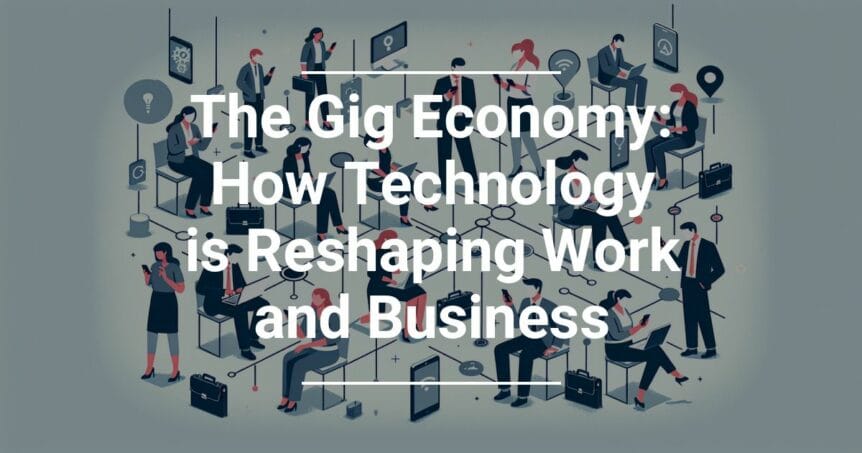The term “gig” was traditionally associated with short-term work taken on by musicians, artists, and other creatives. These jobs, often project-based, offered flexibility but lacked the stability of long-term employment. Today, this concept has expanded and evolved, largely due to advances in technology, leading to what we now call the gig economy. In this new landscape, freelancers use digital platforms to connect with clients and offer their services on a temporary basis, allowing for greater flexibility and autonomy.
Artificial intelligence (AI) and digital marketplaces have been instrumental in propelling the gig economy forward. AI algorithms facilitate better job matching, connecting freelancers with projects that align with their skills and interests. Digital platforms serve as centralized hubs where freelancers can find job postings and communicate with clients, breaking down geographical barriers and making it easier to find work opportunities globally.
Advantages for Businesses and Freelancers
For small business owners, hiring full-time staff for every role is often impractical and costly. Digital marketplaces offer a flexible solution by allowing businesses to hire freelancers for specific tasks as needed. Whether you need a creative writer for ad copy or a technician for equipment repairs, you can find skilled professionals on a project basis. This approach minimizes costs as businesses only pay for services when needed, without the long-term financial commitments of full-time employment.
Access to a Global Talent Pool
One of the most significant advantages of the gig economy is access to a global talent pool. When job opportunities are posted online, they attract candidates from around the world, not just from the local area. This broadens the scope for finding the best talent suited for the job. Freelancers benefit as well, gaining opportunities to work with diverse companies and industries, which helps them develop new skills and reach new professional heights.
Lower Commitment for Both Parties
Short-term contracts offer lower risk for both businesses and freelancers. Businesses can evaluate a freelancer’s performance on a specific project without the obligation to retain them long-term if expectations are not met. Conversely, freelancers enjoy the freedom to choose projects that interest them, allowing for a flexible work-life balance. This autonomy enables them to take on multiple projects or take breaks as needed, reducing the risk of burnout.
Encouraging Small Businesses to Engage
For small businesses, engaging in the gig economy can be a strategic move for risk mitigation and cost savings. By hiring freelancers on a project basis, businesses can dynamically manage their workforce, scaling up or down as needed without the financial burden of long-term salaries and benefits. This approach also allows for a trial period with freelancers to ensure they meet performance standards before considering any future engagements.
Freelancers benefit significantly from the gig economy by gaining control over their workload and schedule. They can select the projects they want to work on and decide how many they can handle at a time. This autonomy promotes a healthier work-life balance, reducing burnout and enhancing overall job satisfaction. As a result, freelancers are often more motivated and productive, delivering high-quality work to their clients.
In conclusion, technology has revolutionized the gig economy, creating a dynamic and flexible work environment for both businesses and freelancers. Small business owners should consider leveraging this modern approach to workforce management to achieve greater efficiency and access top-tier talent from around the globe.





